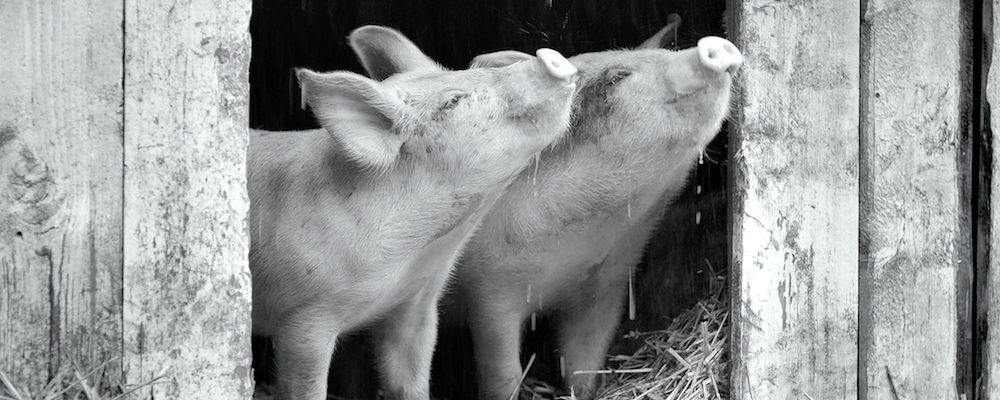‘Gunda’ Enters the Intimate World of a Pig for a Poetic Meditation on the Exploitation of Farmed Animals
Alci Rengifo
“Gunda” basks in the very rhythm of the natural world from an almost microscopic angle. The life of a pig can possess all of the intimacy, warmth and heartbreak we associate with our own human stories. That may sound far-fetched for some, but just look at how Russian director Viktor Kossakovsky finds all those tones by simply allowing his camera to observe farm animals going about daily existence. A filmmaker of saintly patience, Kossakovsky is aiming to make an animal rights film without slogans. He doesn’t need to hang a big banner in front of every frame announcing that the animals onscreen later become our food. Most of them are bred for precisely that end. But in the same way a documentary about people in plight can generate empathy, maybe this one can too.
There is no plot to speak of in “Gunda.” Kossakovsky is more concerned with framing the very patterns of farm animal life. In 35mm black and white, he opens on a slumbering Gunda, who has just given birth to a new litter of piglets. Kossakovsky’s camera takes a god’s eye view of this small family as it begins to take shape based on instincts. They sleep together in piles and rush to suckle milk. Outside in the wider farm world (Kassakovsky shot in several Eastern European farms) chickens exit crates that bring them to their new home, and wander grassy landscapes with the stride of how we imagine prehistoric beasts. With a dreamlike flow a small herd of cattle emerge from a barn, and bulls take on an almost magical, lazily wonderful magnificence. There is no rush in the editing by Kossakovsky and Ainara Vera, or in the photography by Egil Håskjold Larsen. What they do is meticulous and quite special. By allowing the images to speak in the language of the natural world, the filmmakers truly give these animals a sense of identity.
For Kassakovsky the choice of Gunda and the other animals in this documentary allows him to build narrative with his particular style. He is a filmmaker who seeks to convey tones, or to keep his subtext hidden within them. His previous documentary, “Aquarela,” was composed of massive and minute imagery surrounding the theme of water. It was a film that pulled the viewer into an immersive environment of cascading waves, frozen lakes and melting glaciers. Kassakovsky wanted to evoke the majesty of the elements, and how we are distorting and abusing them through climate change. “Gunda” wants us to get close to its animals from their ground level. They do not become mere pets or cute entities, but real personalities. Piglets sleeping together are like any family anywhere, at least in terms of a solid unit roaming together while inhabiting a home. Gunda is a mother, guiding them and making sure they don’t stray. Even when she rests in a puddle of mud, Kossakovsky wants us to feel how relaxing the moment must be for her. There’s even subtle humor in a shot of two cows standing by side, one’s tale casually whipping lightly on the face of the other. Where Gunda and her piglets live has small streams of sunlight that could be out of Renaissance art.
“Gunda” is cinema of a particular and special sort that asks us to truly stop and look at the world around us. In the same way the 1996 documentary “Microcosmos” ventured down into the life of insects, revealing their world as something as grandiose as “Star Wars,” Kossakovsky turns farm life into a drama as eloquent as Tarkovsky’s “Mirror.” Later there will be heartbreak of a brutal kind brought on by another species— humans. “Gunda” impressed Oscar-winner and animal rights activist Joaquin Phoenix so much that Phoenix decided to become an executive producer in order to help launch the film even wider. The last few minutes of “Gunda” confirm why. Starkly, Kassakovsky captures the inevitable fate that awaits Gunda’s children. Never does the documentary become graphic. It is more wrenching to not see, because we know deep down what awaits animals bred solely for the purpose of consumption. Whatever one’s dietary preferences, it will be hard to at least not feel what Kassakovsky evokes in this work. By truly letting the animals of this documentary live on screen, it becomes something very human.
“Gunda” releases April 16 in select theaters.

